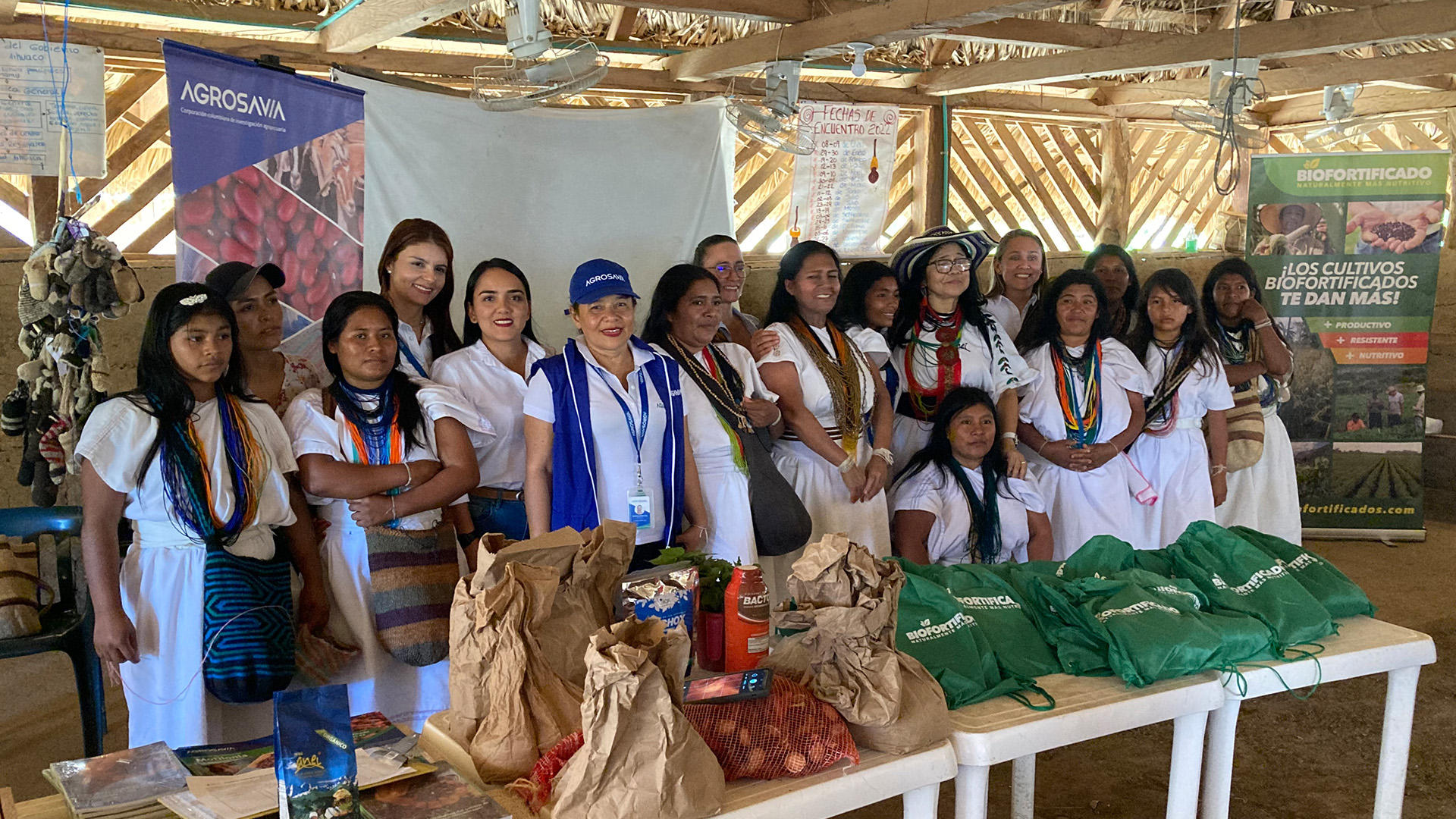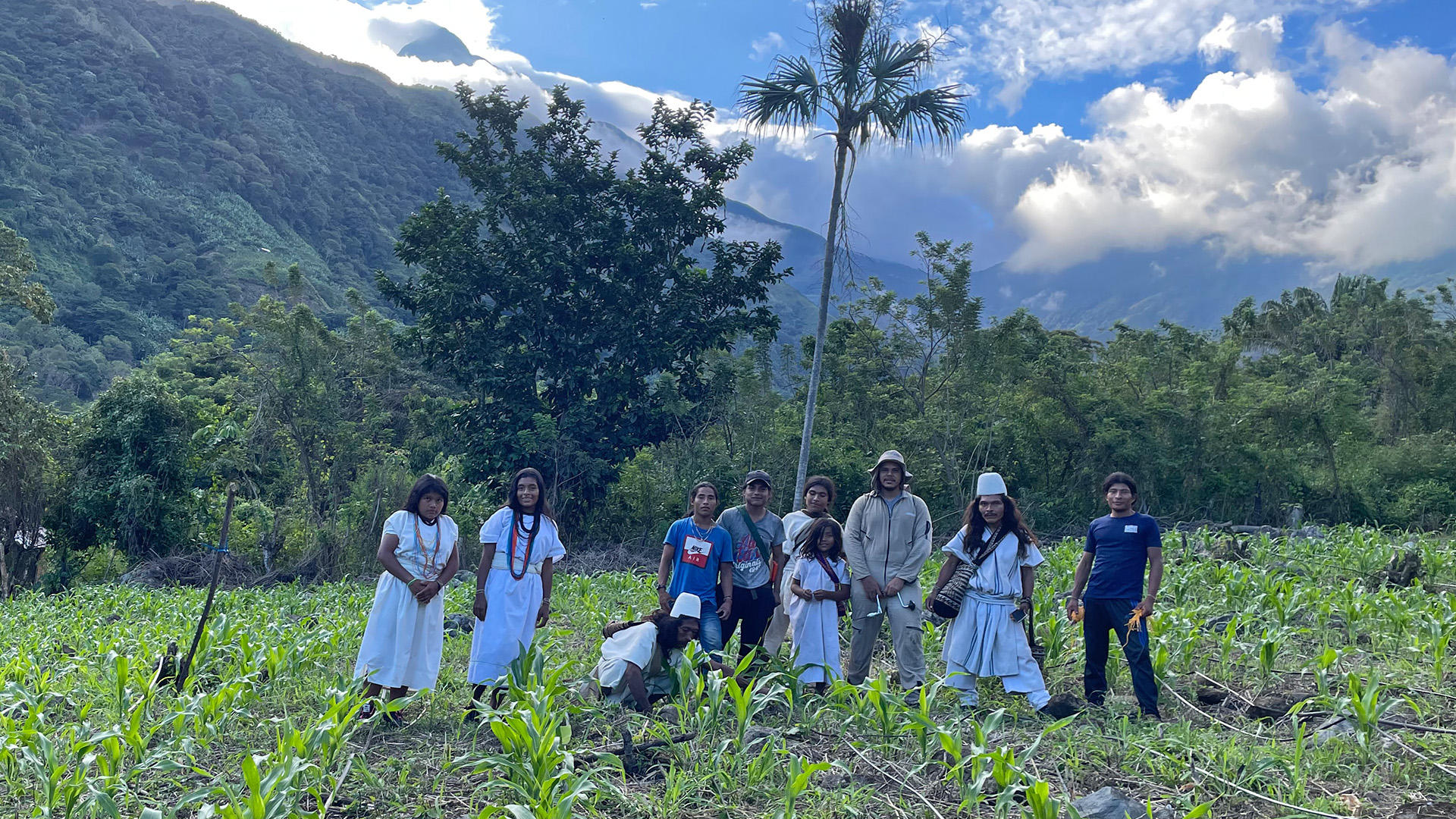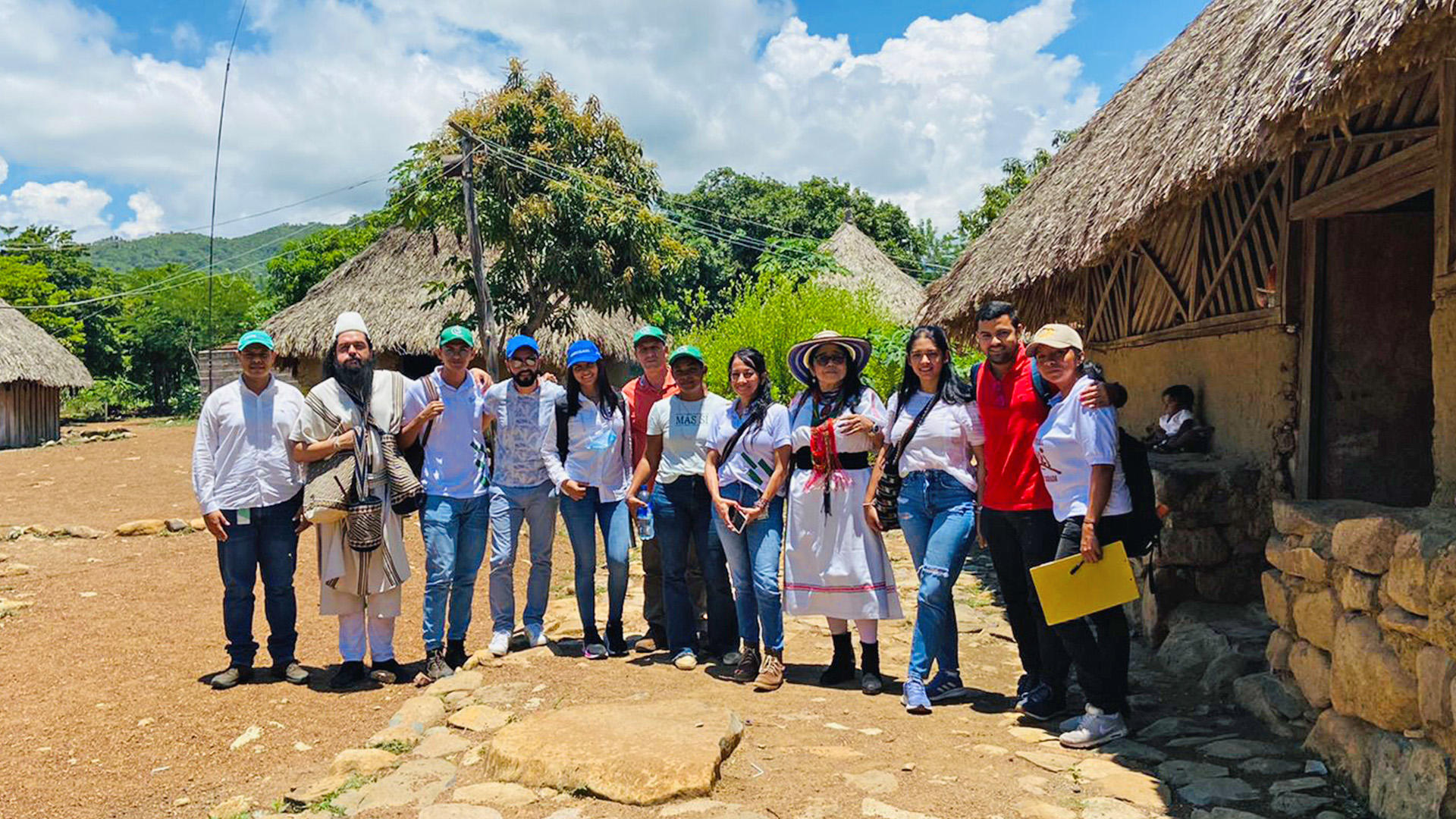From the Field Agroecology for biofortified crops, using technologies with an ethnic and gender approach

The aim of this initiative is to enhance the food autonomy of the Arhuaca ethnic communities through ancestral models. It promotes self-consumption of a diverse basket of biofortified crops such as beans, rice, sweet potatoes, and corn. The goal is to improve the quality of life for beneficiary families, promote local and regional consumer actions, and facilitate the marketing of surplus crops, all while incorporating ethnic and gender-oriented technologies. This model has been proposed by the AgriLAC Resilient Initiative and Agrosavia in collaboration with the ASONEI community in the Cesar department, Colombia.
The strengthening of food autonomy using traditional production models in Arhuaca ethnic communities could promote agricultural self-sufficient production of biofortified crops (beans, rice, sweet potatoes and corn), thus improving producers' and consumers' quality of life, and facilitating the marketing of surplus crops, using technologies with ethnic and gender approaches. A model proposed by the Alliance's Resilient AgriLAC Initiative and Agrosavia in the department of Cesar, Colombia.
To explore this, we went into the Arhuaca's lands to meet with families of the Umuriwa community, sharing knowledge about the nutritional benefits of biofortified crops, as well as the importance of having a basic food basket that can provide the nutrients that the human body requires for optimal development, especially for children.
The process also included a mutual knowledge-sharing on the planting of crops such as beans, corn and rice using agroecological practices and the methods carried out throughout the history of their communities, with the aim of diversifying the community's crops, and ensuring that they can work on short-cycle crops that strengthen their food and nutritional security, including in the traditional production of coffee and cacao.
This is how in the village of El Palmar, activities have been developed with the Resilient AgriLAC initiative and Agrosavia. The facilitators are using a participatory process to train community members, empowering young people, women and people from ethnic minorities, using the biofortified bean plots that have long been managed by the community using the principles of agroecology.
Following this route, bean pilot tests were conducted to share knowledge on nature-based fertilization, irrigation and pest control. The activities were carried out in a community plot of 200 mt (0.2 hectares m²), which was planted at the beginning of October 2022, with completion of six orchards in March 2023.

For more than four months we the team followed progress in the plots, ensuring that the community understands the importance of following the agreed protocols on the continuity of crop cultivation and the use of production surplus, which will provide food for longer, to the families of the community.
One of the most important factors in the implementation of these activities has been the empowerment of the Arhuaca women. To give one example, Oledis Izquierdo shared that: ''this planting method allowed me to have surplus produce for my family's consumption, and the produce's flavor has been equal or better than in the past. My children were so happy whenever I made them a meal with the beans or corn' we produced".
The same learning and knowledge was confirmed by the community's Commissioner, Jesús Ramón Torres, who recommended to the Arhuaco people that they prioritize the delivery of seeds to the community's ethnic agro-ecologists and authorities, facilitating a discussion about beans based on their own experience in their individual plots.

Luz Adriana Jiménez - focal point of Resilient AgriLAC in Colombia, coordinating the implementation of the activities with Agrosavia - said that this process aims to offer rural communities a set of agricultural technologies that consider nutrition and climate adaptation, which are currently being developed in research centers. The participants can then test these technologies in their fields, combined with their community's traditional farming practices, which play a key role in agricultural development and sustainability.
Similarly, Natali Rendón (Agricultural Engineer) and Sandra Vargas (Research Associate) concluded that through the Resilient AgriLAC Initiative ''we seek to integrate knowledge, technologies and experiences in communities to increase innovation in environmentally friendly agriculture whilst reducing maintenance costs, so that farmers can both sell and consume surplus produce''.

The work dynamics in this second year of implementation has included sharing experiences with the community, and exploring topics such as nature-based crop management, low-cost irrigation, market research, gender inclusion and the establishment of seed banks, providing valuable new knowledge for the community to make their farming more sustainable and resilient.
AUTHOR: AgriLAC Resilient AgriLAC Initiative, Work Package 1, Colombia.
